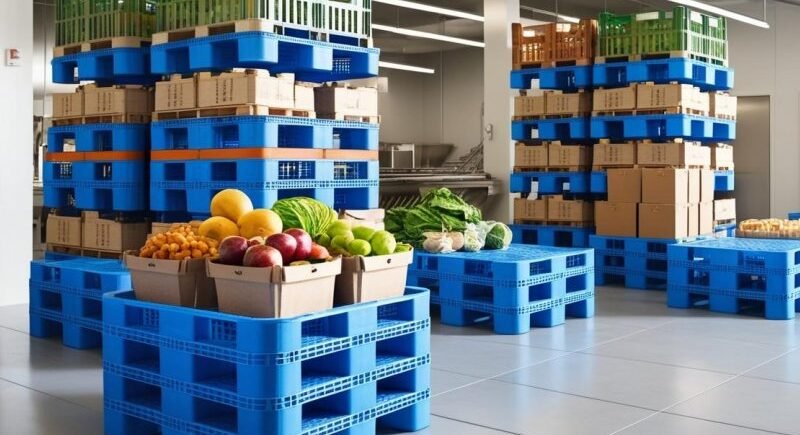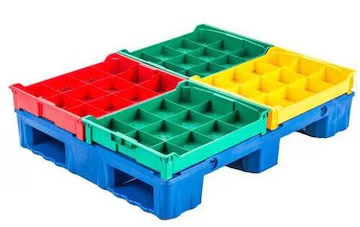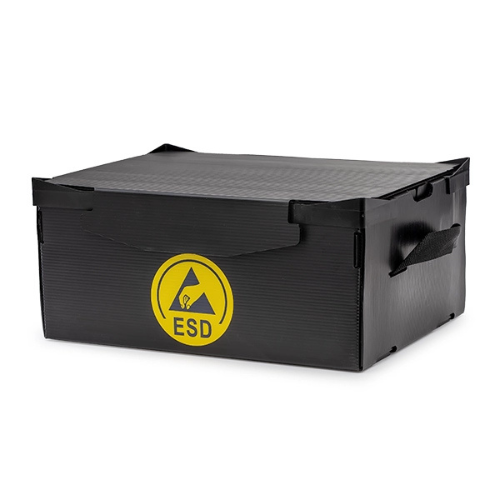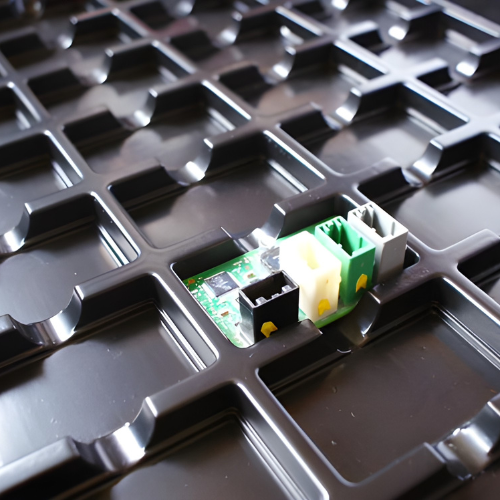Role of Plastic Pallets in Supporting Modern Agriculture
Plastic pallets provide a clean, durable, and reusable platform for handling, storing, and transporting agricultural goods. Their non-porous surfaces resist moisture, chemicals, and pests, helping protect produce, seed bags, and agrochemicals from contamination. Lightweight yet strong, plastic pallets improve handling efficiency and reduce breakage compared with some wooden alternatives. Nestable and stackable designs save yard space and lower return freight costs, while hygienic constructions enable easy washdowns—valuable for food-safety and post-harvest operations. Click Here To View Product Detail.

Key Applications of Plastic Pallets in Agriculture
Harvested Produce Handling & Transport
Plastic pallets offer a stable, contamination-resistant base for crates and bins of fruit, vegetables, and cut produce during packing and freight. Their consistent dimensions make palletizing and pallet handling faster and safer, reducing bruising and post-harvest losses. Click Here To View Product.
Cold-Chain & Refrigerated Storage
Non-absorbent plastic pallets perform well in cold rooms and refrigerated trucks, resisting moisture and mold. They help maintain hygiene in temperature-controlled supply chains for perishable crops. Product.
Seed, Fertiliser & Agrochemical Storage
Plastic pallets resist chemical spills and are easy to clean, making them suitable for storing bags of seed, fertilizer sacks, and packaged agrochemicals while reducing cross-contamination risks.
Bulk Feed & Silage Handling Support
Used as a base under feed bags, barrels, or packaged silage inputs, plastic pallets keep materials off the ground and away from moisture and pests—preserving feed quality. Click Here To View Product.
Nursery & Horticulture Operations
Lightweight, nestable plastic pallets simplify movement of potted plants, trays, and soil bags around nurseries and greenhouses. They reduce debris transfer and are compatible with automated handling equipment.
Returnable Pooling & Stackable Logistics
For fresh-produce networks and co-ops, nestable and stackable plastic pallets reduce empty-trip costs and yard congestion. Their long service life lowers total cost of ownership for high-turnover agricultural shippers.

Importance of Plastic Pallet Packaging for Agriculture
Plastic pallets are important to modern agriculture because they combine hygiene, durability, and predictable handling characteristics. Their resistance to moisture and pests reduces spoilage and contamination; their smooth surfaces allow for easy sanitation to meet food-safety standards; and their repeatable dimensions speed mechanized palletizing and loading. For growers, packers, and distributors, these traits translate into fewer damaged goods, faster throughput, and lower lifecycle costs compared with many single-use or poorly maintained wooden alternatives. KRC Packaging supplies agriculture-grade plastic pallets engineered for washdown resistance, nestability, and load-bearing performance. Click Here To View Product.
Best Practices When Using Plastic Pallets in Agriculture
• Choose food-contact or FDA-compliant materials for direct or near-food storage.
• Use nestable/rackable designs that match your transport and storage systems.
• Implement regular cleaning schedules to prevent microbial buildup.
• Pair pallets with slip-sheets, anti-slip mats, or stretch film for added load security.
• Track pallets with barcodes or RFID for pool management and recall readiness. Click Here To View Product.

Conclusion: Improving Agricultural Logistics with Plastic Pallets
In summary, plastic pallets provide a hygienic, reliable, and cost-effective foundation for agricultural packaging and logistics. Their moisture resistance, easy sanitization, and lifecycle value protect produce and inputs from contamination and damage—helping farms, packhouses, and distributors move goods faster and safer. KRC Packaging offers tailored plastic pallet solutions designed to meet the specific durability, hygiene, and handling needs of modern agricultural operations.





